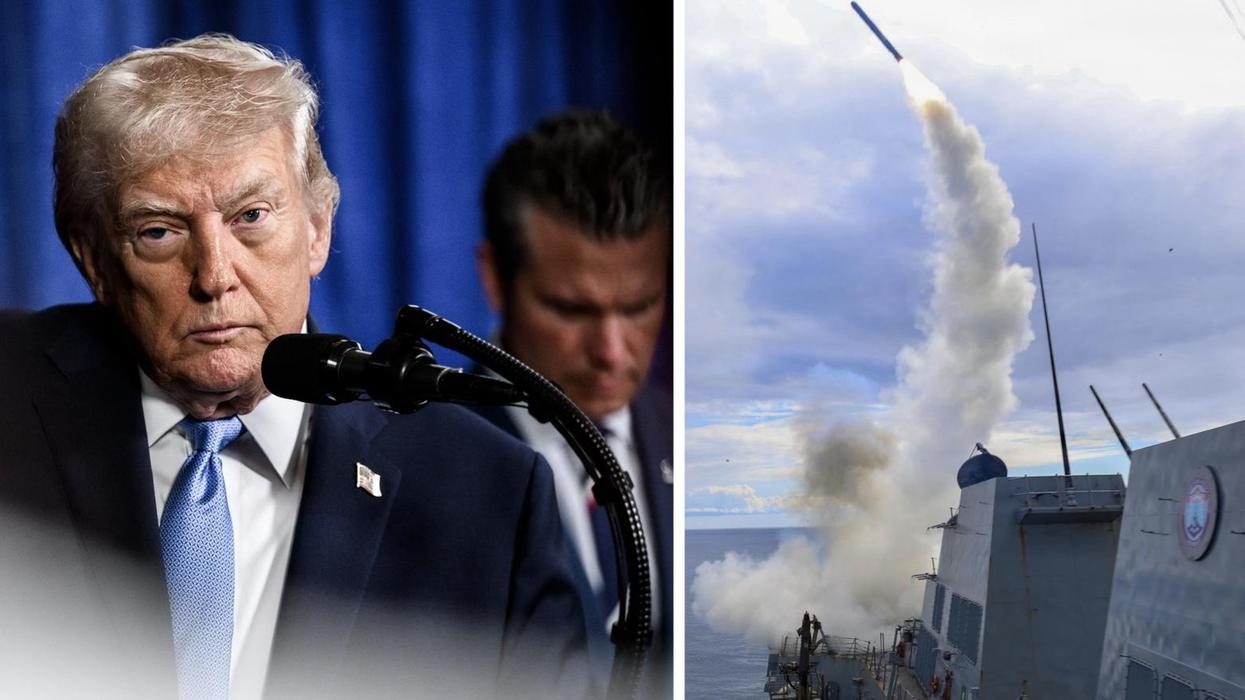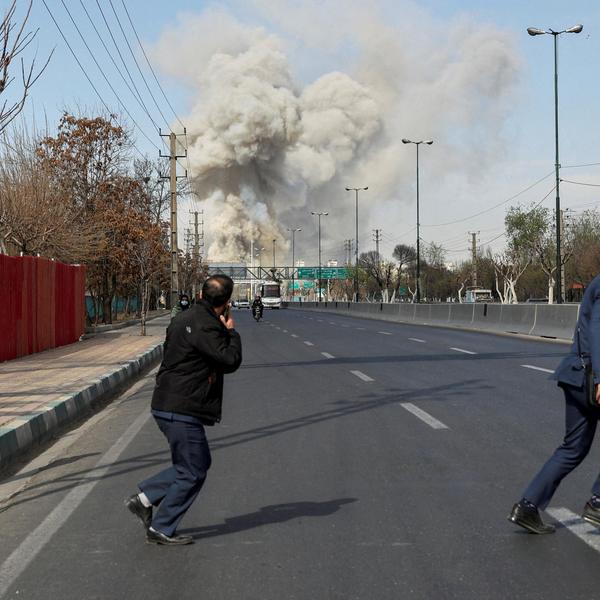Nearly seven years ago, Sen. Tom Cotton convinced 46 of his fellow Senators to sign an open letter to Iran’s leadership, warning against agreeing to a nuclear deal with the Obama administration and highlighting that the next president could undo the agreement with a stroke of a pen. The backlash was fierce, with the senators branded traitors on social media along with warnings that they violated the Logan Act, which bans Americans from interfering with U.S. foreign policy.
Even the late Sen. John McCain, who once sang joyfully about the prospect of bombing Iran, was taken aback by the pushback and blamed an impending snowstorm for not giving the letter better consideration. Cotton’s letter was an unprecedented act — but one that has seemingly grown normalized in the post-Trump era, as it becomes expected that America will not honor its word as political power swings back and forth between pro-diplomacy and anti-diplomacy camps.
This week, House Republicans organized the brazen follow-up to Cotton’s letter, with more than 160 lawmakers laying out a series of unobtainable demands for any deal and warning that a new deal will “meet the same fate” as the agreement Trump withdrew from. Even if we’ve come to expect this kind of sabotage from many elected Republicans it is yet another shameful chapter in which many of our nation’s lawmakers are at the heart of the problem.
This isn't aimed at Biden, it's not even aimed at hurting Iran, it is an attack explicitly aimed at sabotaging U.S. diplomats by strengthening the hand of those in Iran who prefer to reject a deal, escalate regional tensions, and rapidly close in on a nuclear breakout capability. The hardline propaganda apparatuses in Iran would be hard pressed to launch a more effective assault against American diplomacy and national interests than the House Republican caucus.
Negotiations to revive the agreement are at a critical stage, with parties noting that a deal can be struck within days. According to reports, an agreement of approximately 20 pages has been drafted, with sections dedicated to nonproliferation steps, sanctions lifting, and sequencing. It has been no small task to reach the precipice of a deal amid domestic American political turmoil, a change in governance in Iran, and major sabotage aimed at Iran’s nuclear facilities in the first half of 2021. A few of the thorniest issues remain, including what to do with Iran’s advanced centrifuges and what assurances Washington can offer that it won’t exit the nuclear deal again.
Regrettably, there are few guarantees that Biden or other U.S. policymakers can credibly offer that a future U.S. president won’t follow Trump’s lead. But however much noise Republicans can generate in opposition to the agreement, they are doing so at a decisive disadvantage in comparison to when they tried and failed to kill the nuclear deal in 2015. Then, Republicans controlled each chamber of Congress when Obama negotiated the original bargain. And despite the drama they raised to deter the United States and Iran from entering a mutually beneficial deal, the agreement was secured despite legislative vehicles intended to kill them. This time, Biden has his party holding a slim majority in each chamber for now. Given that the vast majority of Democrats support the deal, the political path to securing reentry is easier. Even if Republicans take House and Senate majorities in the midterm elections, they will have few direct lines to kill the deal without support from the Oval Office.
Likewise, experience has made the deal all the more attractive with time. While Obama rightly foresaw that the options were between escalation to war and diplomacy, Trump’s exit from the deal proved him prescient. Iran — spurred on by ever increasing sanctions, escalation and sabotage — did not agree to a better deal as predicted by opponents of the JCPOA. Instead, Iran predictably escalated in kind, bringing its nuclear program to new heights and posing new security challenges across the region. As a result, Trump twice found himself at the brink of war, only to pull back despite the urging of his hawkish advisers.
The letter’s signatories also had the gall to offer empty platitudes to the Iranian people about their hope that sanctions can one day be lifted — while trying to stand in the way of just such an opportunity. Iranians have been struggling for years under an oppressive government at home and crippling sanctions imposed by the United States that have decimated Iran's middle class and exacerbated the suffering of Iran's most vulnerable populations. Iranians took to the streets in 2015 to celebrate the nuclear accord and their hopes for what was to come. The message from these lawmakers — that they will not only tank an agreement that would lift those sanctions and improve the lives of Iranians, but they will do so in the name of the very Iranians they are punishing — is an insult and reflection of the dehumanization of Iranians that is the bread and butter of our Beltway hardliners.
Despite the noise, Biden’s choice remains clear. He can listen to those who would oppose any nuclear agreement with Iran and double down on the failed maximum pressure approach that has set the United States and Iran on course for a disastrous war. Or he can restore the nuclear agreement and try to make it work as it was intended. The path may not be easy, but the choice is clear. It is time to restore the nuclear agreement, roll back Iran’s nuclear program and restore sanctions relief that will benefit ordinary Iranians. Only then can Biden show that the United States intends to honor its commitments, and seek to build a more durable foundation that could better protect the agreement from the caustic politics in Washington and Tehran.
















